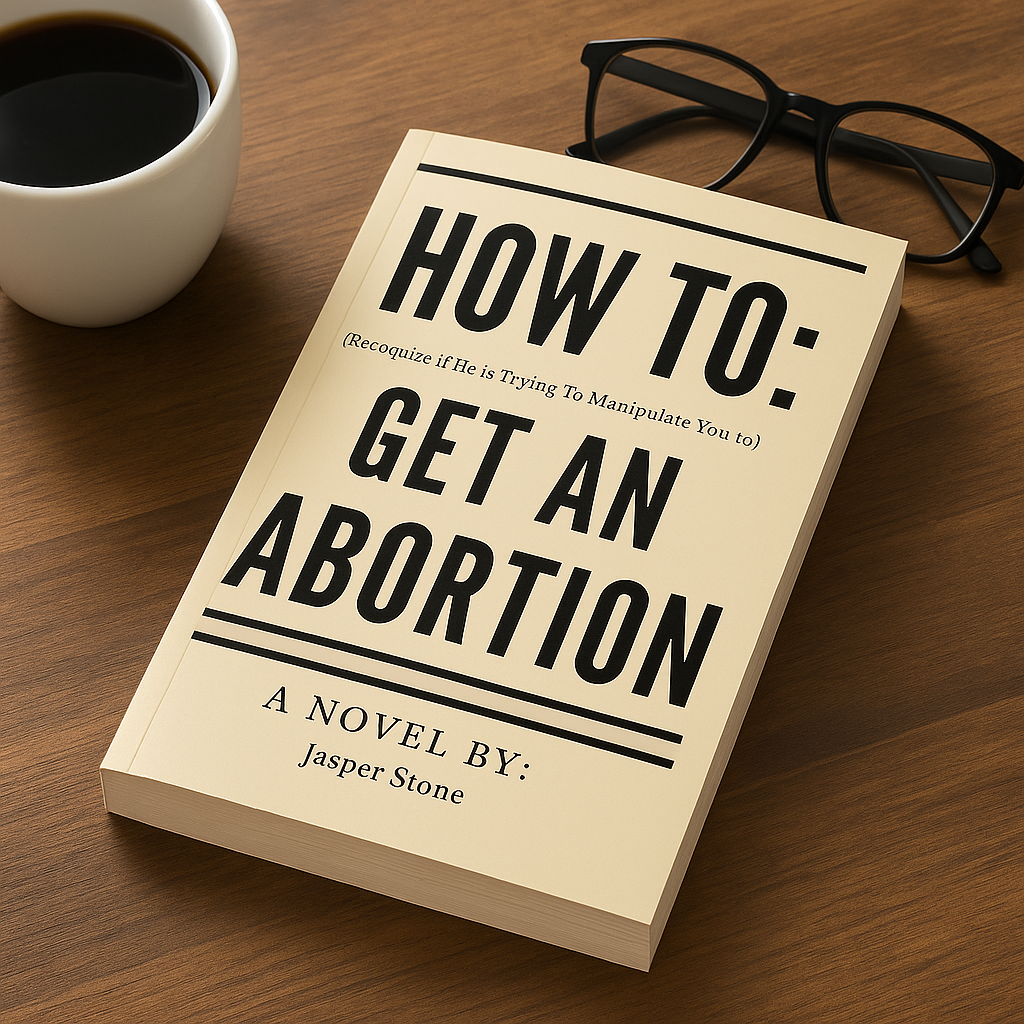

In a culture addicted to image-driven morality and feel-good lies, Jason Stoddard is the villain who dares to be honest. He lies. He ghosts. He convinces women to get abortions—then disappears, and he doesn’t feel bad about it. With raw language and a voice so familiar it’s disarming, the character Stoddard breaks down sex, power, love, and manipulation in a way that’s so brutally clear, it almost makes sense. Almost.
You’ll hate him. You’ll quote him.
This book doesn’t ask for your approval. It flips the table over, stares you down, and dares you to keep reading. And part of you will wonder how many Jason Stoddard’s you’ve already met. Ugly. Addictive. Attractive. And Unapologetically real. If you've ever been manipulated—or done the manipulating—this book is your mirror. One you might not be ready to look into. Not even a little.
How To: (Recognize if He is Trying to Manipulate You To) Get an Abortion was written for many reasons. While women’s experiences are rightfully at the center of conversations about abortion, men are rarely invited into those discussions. As a result, their feelings of grief, loss, confusion, or helplessness often go unacknowledged. This book explores the overlooked impact abortion can have on men—emotionally, mentally, and relationally.
There is also a profound imbalance of power in these situations. If a man does not want a child, he has little to no influence over the outcome, and his emotions are frequently dismissed. Conversely, if he deeply desires fatherhood, his longing is often considered irrelevant, overshadowed by the principle of “my body, my choice.” In these circumstances, a man may find himself silenced and powerless, unable to advocate for the future he envisions. So, what options are truly left to him?
I believe, without hesitation, that abortion must remain legal—because women deserve complete autonomy over their bodies, just as men deserve autonomy over theirs. Yet I also believe women should be made aware of the mental and emotional coping strategies, sometimes damaging or manipulative, that men may resort to when they feel excluded from this life-altering decision and the dangers these strategies can have for them.
This book is an attempt to open dialogue, broaden understanding, and invite empathy on all sides. It aims to highlight responsibility, fairness, and compassion in reproductive choices. These perspectives may challenge the norm, but they are real, ever-present, and often spoken about only in private. My hope is that by bringing them into the light, we can create space for deeper honesty and connection.
"It’s not just a story. It’s a warning, and the kind of awareness found in these pages could save someone from heartache. That makes this a book worth reading."
"Along the way the protagonist does not ask for forgiveness or seek redemption from the reader, which is appreciated. The transgressions are indelible, the kind not easily forgotten and leave one imagining the recovery of those who encountered him long after he has disappeared. Any potential for redemption would come from them and have to be genuinely sought out."